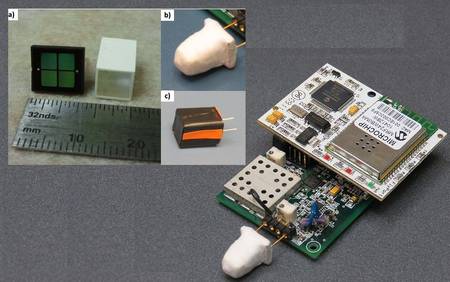Researchers at the University of Oregon have developed a miniaturized and cost effective radiation detectors. Named as MiniSpec, it measures the level of gamma radioactivity. Its designers think they can sell less it for less than $150.
The Fukushima nuclear disaster in Japan which occurred in 2011, created a public demand for radiation detection devices. The inhabitants of the surrounding areas wanted to know the level of radiation to which they were exposed. Whether their homes, their food and water were not contaminated. But these sensors are expensive and can only be used by the professionals. That is why nuclear engineers from the University of Oregon have developed a portable and inexpensive sensor that can help individuals to measure radiation around them.
Currently under development, this device called MiniSpec that measures intensity and also the type of radiation. It could be not only used in case of a nuclear accident but also in other circumstances. According to Professor Abdollah Farsoni who is incharge of the project, radiations is a part of our daily lives. It is present all around us. This technology enables us to measure day to day levels of radiations to which we are exposed. Although to date no price of the device has been announced, the research team thinks the detector could be sold for less than $ 150.
The scientific paper published in the journal Nuclear Instruments and Methods in Physics Research reveals the technical details of MiniSpec. The device measures 5 x 10 x 5 cm and weighs only 28 g without battery. This device is actually a spectrometer to measure intensity of gamma rays. Researchers say that they have combined a light sensor with a scintillator, which allowed them to miniaturize the sensor. It can be operated at the room temperature while getting a good energy resolution (662 keV) and low power consumption ( about 420 mW).
The team from the University of Oregon plans to develop several models of this detector, which would be used at homes. It could be used to measure and analyze the radiations from the floor, walls, concrete or granite. The MiniSpec could also connect wirelessly with another mobile terminal.


